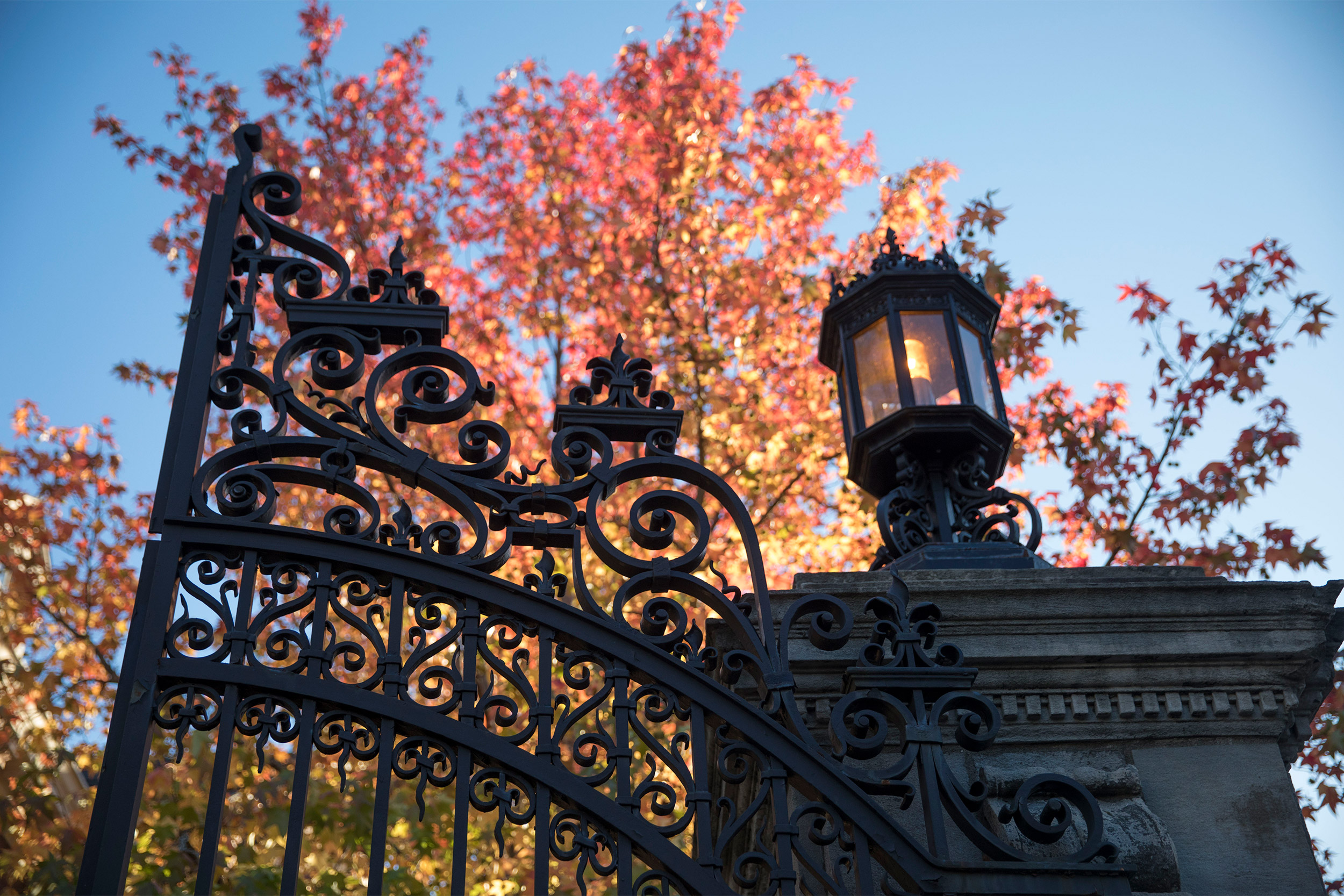
Kris Snibbe/Harvard file photo
Six graduate and professional Schools to remain online for fall
Administrators’ concerns include the ongoing threat posed by the coronavirus and the possibility of additional quarantines
Six Harvard graduate and professional Schools announced on Wednesday that they would continue teaching classes online at least through the fall semester, citing concerns about the ongoing health threat posed by the novel coronavirus pandemic and the possibility of new quarantines due to resurgence of the disease.
Five of the Schools — the Graduate School of Design, Divinity School, Law School, T.H. Chan School of Public Health, and Harvard Kennedy School — detailed their plans to extend their current practice of remote teaching through the rest of the calendar year in messages to their communities. The Harvard Graduate School of Education took the further step of announcing it would transition to a “fully online experience ” for the entire school year.
“Our decision largely centers on continued disruptions to residential learning in the wake of COVID-19,” wrote HGSE Dean Bridget Terry Long. “In addition to the strong likelihood of intermittent periods of quarantine (orders to remain at home), we expect distancing measures will need to be in place through the entire academic year to continue to mitigate the spread of the virus. This scenario presents many challenges and likely multiple interruptions to an on-campus program, which would result in a severely altered experience that could compromise the HGSE learning experience.”
The Harvard School of Dental Medicine and Harvard Medical School declared last month that they would conduct remote classes for incoming medical and dental students in the fall while hoping to hold “in-person research and clinical experiences for our returning medical and graduate students.” Today’s announcements could bring the number of Harvard students who will be learning remotely in the fall to more than 6,000.
The Faculty of Arts and Sciences — which includes Harvard College, the Graduate School of Arts and Sciences, and the Division of Continuing Education — and the Harvard Business School have yet to disclose fall plans. In May, the Radcliffe Institute for Advanced Study announced that its 2020/2021 fellowship year would be virtual, “with the possibility of a residential component, pending decisions on Harvard-wide policies by University leaders and informed by epidemiological models of the spread of COVID-19 in the United States.” The Institute will make a decision about the remainder of its campus programs in the coming weeks.
In an April message to the Harvard community, Provost Alan Garber confirmed that the University would be open in the fall of 2020, but emphasized that each School would determine its own approach to courses, programs, and activities for the academic term.
“Our goal is to bring our students, faculty, postdoctoral fellows, and staff to campus as quickly as possible, but because most projections suggest that COVID-19 will remain a serious threat during the coming months, we cannot be certain that it will be safe to resume all usual activities on campus by then,” wrote Garber, noting that “because our Schools have different approaches to learning and research, aspects of the fall semester will likely vary among them.”
Administrators from the Schools said they were announcing their decisions now to allow students — many of whom would soon be moving into campus housing, searching for apartments, or traveling from abroad and requiring visas — enough time to plan for the coming months. Both the HLS and HKS deans said they would expand deferral options for incoming students. The Harvard Kennedy School also plans to relax its leave-of-absence policy, wrote Dean Douglas W. Elmendorf, offering returning students the option to “take a leave of absence for a semester or a year if they would prefer to do so.” Long said HGSE will allow incoming master’s students to petition to enroll part-time.
Many of the School officials also elaborated on their ongoing efforts to enhance the online learning experience and build virtual community among their students.
“The Harvard Law School faculty is already hard at work adapting their teaching plans in order to offer the best online courses and clinics possible,” wrote Law School Dean John F. Manning in an email to students. “We also have been working to identify and develop channels for creating meaningful interactions and connections outside the classroom and for supporting the extracurriculars that are an integral part of your law school experience.”
Since March, faculty, students, and staff at every School across the University have been teaching and working remotely as the virus swept through the state. As of May 28, 127 members of the Harvard community have tested positive for COVID-19, among them President Larry Bacow and his wife, Adele Fleet Bacow, who have since fully recovered.
In Massachusetts there have been 101,163 cases of the coronavirus, with 7,085 deaths as of June 2, according to the state Department of Public Health.
The University’s plans were developed with input from public health and state officials and informed by Massachusetts Gov. Charlie Baker’s four-phase plan for reopening unveiled on May 18. In an email to the Harvard community the same day, Garber and Harvard Executive Vice President Katie Lapp clarified what the state’s plan would mean for the University, writing that “while the Governor’s plan allows for a limited re-opening of general office space as part of Phase 1, all faculty and staff who are currently working remotely will continue to do so until further notice.” Their message also stated that Harvard would “begin to resume operations in our science laboratory facilities with very stringent requirements” on May 25, in line with the governor’s plan.
For more information visit the University’s School and Program Information page.




